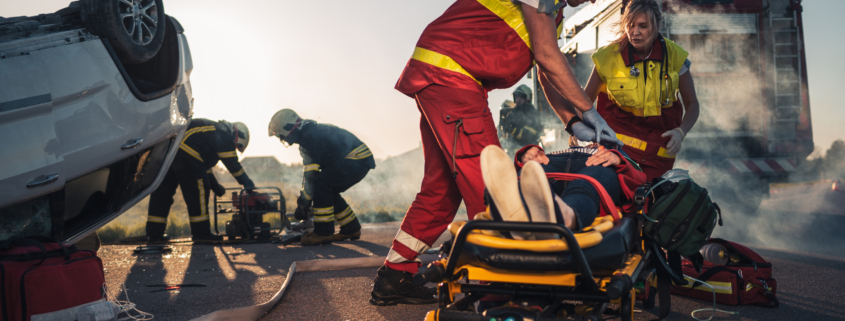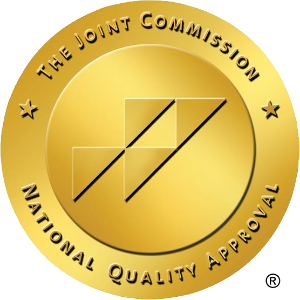Drug and alcohol abuse can affect just about ANYONE. This serious disorder does not discriminate based on age, gender, ethnicity, lifestyle, or even profession. You might think that young adolescents or those who are underprivileged or have poor backgrounds are the only ones who have higher risk of turning to alcohol or drugs due to their vulnerability and difficult situations. But that’s not always the case. You might also assume that people who seem to be strong and brave, or those that have stable and high paying jobs are less susceptible to alcohol or drug dependence. But that, too, is not entirely true.
Contrary to popular belief, even those who we think have the highest level of self-discipline, or those who have the most decent occupations, are not entirely safe from alcohol and drug abuse. Sadly, these are diseases that cannot be defined by general assumption or judgment. The reality is that, addiction and alcohol abuse are existent across all demographics in the US.
First responders and healthcare workers are two groups who we might think would be less prone to addiction or alcoholism. Apart from the fact that society holds them in the highest regard, they are the ones who take care of us. They save us from dangerous situations and even prevent us from hurting ourselves and others. We also perceive them as people who would most likely go the extra mile in order to protect their health and wellbeing. We picture them in their uniforms and honor them as modern day heroes.
However, drug and alcohol abuse has been an ongoing problem among first responders and healthcare professionals for many years. In fact, studies show that the prevalence of substance abuse disorders in doctors and nurses is estimated between 10-14%, which is the same as the general population. This is especially true for anesthesiologists, psychiatrists and ER doctors, who were seen to have the highest percentage among other specialties. Among nurses, 20% struggle with an addiction to drugs or alcohol as per a study conducted by the Journal of Clinical Nursing.
A study on police officers and alcohol abuse has shown that at least 18.1% of male officers and 15.9% of female officers are experiencing adverse effects of alcohol abuse. Additionally, The National Survey on Drug Use and Health has reported that 29% of firefighters are involved in alcohol abuse and 10% have a high possibility of addiction to prescription drugs.
Despite having a stable and esteemed profession that pays well, there are still a lot of factors why an emergency responder or healthcare worker would end up struggling with substance and alcohol abuse.
- High Levels of Stress
Probably more than anyone, healthcare workers and first responders encounter different stressful situations on a daily basis. Their industry requires them to remain calm and focused at all times while making a lot of big decisions that could affect another person’s life dramatically. Aside from the constant pressure that even the smallest mistake can put a patient’s health in grave danger, these workers are also in the frontlines, witnessing some of the most disturbing, traumatic and depressing situations imaginable.
All these stressful circumstances can adversely affect someone’s mental and emotional health. If not treated or managed properly, it can even lead to more serious issues such as post-traumatic stress disorder (PTSD), anxiety and depression. In fact, a survey published on Depression and Anxiety revealed that 22% of participating nurses showed signs of PTSD, in which 18% of them were diagnosed for the illness, and almost everyone were seen to have burnout syndrome (BOS). These mental issues have major side effects that are very hard to deal with. Unfortunately for some, turning to drugs or alcohol is the only thing that could relieve them from the unbearable symptoms of their mental condition.
A perfect example is a study conducted by the Substance Abuse and Mental Health Services Administration (SAMHSA) after Hurricane Katrina, which is a very devastating disaster in 2005. It was reported that more police officers involved in relief operations had significant association to hazardous alcohol drinking. In fact, alcohol consumption increased from 2 to 7 drinks per day.
- Peer pressure
The need to fit in is normal, no matter what industry you’re in. And it’s the same for healthcare professionals and emergency responders. Any late night party or social outing will not be complete without booze. It serves as a form of bonding and camaraderie between workers who have shared sentiments regarding their job and organization. Needless to say, excessive partying can lead to increased and addictive alcohol consumption.
- Accessibility to prescription drugs
Being the ones prescribing and administering drugs to patients provides healthcare workers and emergency medical personnel with easy access and frequent exposure to certain medications, hence they have a higher tendency for drug misuse and possible addiction. Also, their vast knowledge about the different side effects that these drugs can have in an individual can spark interest as to how these prescription drugs can help manage their own emotional and mental battles.
According to studies, these drugs are the most commonly misused medications by healthcare workers:
- opioids – a medication prescribed to relieve pain
- stimulants – drugs that result in increased body activities
- anti-depressants – usually sedatives and tranquilizers used to treat insomnia and anxiety
- Physically demanding profession
Not only do healthcare workers and first responders experience emotional and mental strain. They are also prone to excessive physical exhaustion. Due to long hours, shifting schedules and unpredictable emergency calls, they barely have time to rest and decompress. As a matter of fact, SAMHSA has reported that 72% of Emergency Medical Teams (EMTs) suffer from sleep deprivation. Therefore, the need for additional energy in order to stay awake and active in the job can drive them to drug dependence.
Though there are various ways to treat a healthcare worker or an emergency responder who is struggling with drug and alcohol abuse, there are a lot of factors that may prevent them from getting immediate help. Some of these are:
- the embarrassment of being tagged as an addict or an alcoholic can be unbearable for someone who has a decent profession; all the more when the person is coming from the healthcare, law enforcement or emergency response industry
- the fear of losing a respected job, or worse – the license to practice
- the idea of abandoning their line of work due to prolonged absence to get treatment
- being worried for other people getting affected (patients needing aid; families needing financial support)
Sadly, some institutions even choose to discuss and resolve the matter behind closed doors preventing proper expert intervention and treatment.
How to Seek Quality Help
While even people who have respected and stable jobs are not safe from drug addiction and alcoholism, there are a lot of different ways to help them get treated. One of the key factors that can determine the success of their treatment is if the facility or staff specializes in dealing with healthcare workers and first responders. Since their mental health and addiction needs are not the same as the general population, their treatment should be centered on that in order to have a higher probability of success.
Fortunately, some organizations have policies and standard procedures regarding drug abuse and alcoholism within their workforce. Most of these organizations offer free treatment and rehabilitation for staff and even promise of letting them reclaim their positions and responsibilities once the provided treatment has been completed.
Here are some programs available for medical professionals and emergency responders:
- Inpatient rehabilitation – This may not be the most preferable program for these groups as they need to be present at work all the time. However, this can be a very effective path as it offers a high level of care and round-the-clock treatment monitoring which can lead to faster and long lasting recovery.
- Outpatient rehabilitation – This is most advisable for mild addiction and alcohol abuse which are still in the early phases. For professionals who cannot commit to prolonged absence at work, outpatient rehab can conveniently work around their schedules.
- Group therapies – Some people find it more beneficial when they are joined with other people who are experiencing the same issues as their own. This will work even better if the patient is grouped with people with the same profession.
- 12-step programs – The 12-step method was founded by Alcoholics Anonymous many years back. These are guidelines that are proven to be effective in overcoming addiction to alcohol. Because of its success, they have even formed various types of 12-step programs addressing specific kinds of addictions, such as cocaine abuse and more.
Next Level Recovery specializes in drug and alcohol abuse treatment and we can even tailor our treatments based on your specific needs. We have had the chance to help many patients from the healthcare, law enforcement and emergency response industries who have successfully overcome their abuse after our intervention. We offer various treatments that are dedicated to address Opiate Addiction, Alcohol Abuse and Substance Abuse. We also have treatments focused on Anxiety, Depression and PTSD. For more information, do not hesitate to call us at (888) 759-5846. You can be confident that you will be in good hands.




